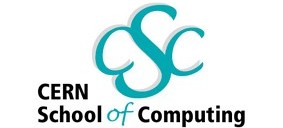|
|
 |
|
|
|
|
|
iCSC 2008
Lecturer Biographies
at the
time of the school
|
|
|
Iris CHRISTADLER |
Leibniz Supercomputing Centre - Germany |
|
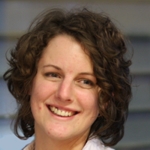 |
I am a
member of the grid and the user support teams at LRZ. We operate a 9728 core
SGI Altix 4700 and a heterogeneous Linux-Cluster with 800 cores. Together
with the MPG a cluster with 800 cores and 350 TB disc space is part of LCG
as a Tier-2 Center. In addition to LCG, LRZ is also a member of the DEISA/eDEISA
grid infrastructure. My work involves porting of applications to different
platforms, optimization, debugging and grid enablement, which is currently
limited to DEISA but should be expanded to LCG as well.
|
|
|
Jose Miguel DANA PEREZ |
CERN,
Geneva - Switzerland |
|
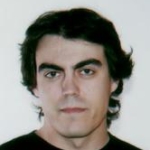 |
Jose M. Dana
studied at University of Almeria (Spain) where he obtained a M.Sc. degree in
Computer Science and worked for the "Computer Architecture and Electronics"
department for the last two years of his degree. Moreover, he is member of
the "Supercomputing: Algorithms" research group of his University since
2004. During his collaboration he has written several papers about scalable
image and video coding. He was a CERN Summer Student in 2005 and he worked
in compiler optimization related tasks (in CERN openlab). In October 2006 he
re-joined CERN openlab as a Fellow working this time in Grid deployment and
virtualization subjects. Right now, he is combining his work in CERN openlab
with his PhD studies.
|
|
|
Alfio LAZZARO |
University of Milan and INFN, Milan - Italy |
|
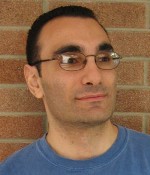 |
I am a postdoc in University of Milan, department of Physics, and I'm a
member of the BaBar Collaboration and recently a new member of Atlas
Collaboration . BaBar is an experiment of High Energy Physics
running at SLAC, Menlo Park, CA. Currently I'm the Physics Software
Coordinator of the Collaboration. The activity is finalized to develop and
maintain the code used for event reconstruction and data analysis. My
research is on physics analysis and software used for data analysis. In
particular, I study the charmless decays of B mesons to final states
containing an eta or eta' meson. For all these studies I have developed a
fitting program (maximum likelihood fits) in C++ language on Linux/UNIX
platform. This program,
called MiFit, uses ROOT and RooFit classes. I use several other techniques,
like Fisher Discriminant, Neural Network, Decision Tree. |
|
|
Manfred MUECKE |
University of Vienna
- Austria |
|
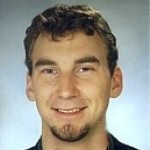 |
I studied electrical engineering
with emphasis on telecommunication and computer architectures. I am
interested in design and implementation of languages and compilers to enable
more efficient description and synthesis of complex FPGA-based computing
systems.
I wrote my PhD thesis at CERN, focusing on design methodologies for digital
signal processing on FPGAs. All LHC experiments use FPGAs in their data
acquisition systems at medium trigger levels. It was therefore a most
exciting work environment.
Currently, I am working on the optimization of molecular dynamics
simulations.
|
|
|
Andrzej NOWAK |
CERN,
Geneva - Switzerland |
|
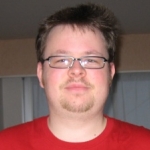 |
Andrzej Nowak has been working at CERN openlab, a partnership between CERN
and the industry (Intel, HP, Oracle), since 2007. His early research
concerned operating systems security, mobile systems security, and wireless
technologies. During his studies in 2005 and 2006, Andrzej worked at Intel,
where he researched custom performance optimizations of the Linux kernel and
took part in developing one of the first 802.16e (WiMax Mobile) wireless MAN
networking standard implementations. Soon after obtaining his diploma, he
joined openlab in January 2007. Andrzej deals mostly with multi- and
many-core architectures and parallel processing. Another significant area of
his work is platform optimization and performance assessment. |
|
|
|
